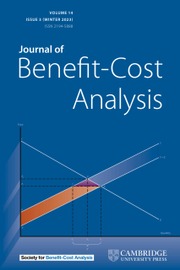Journal Article - April 2024
Estimating Lost Dividends from Incomplete Energy Access Transitions
Energy access is often considered a catalyst for development. Yet, the binary classification of household electrification misses important variation in service quality and in how households use electricity. To examine the benefits of household electrification and illustrate the importance of using more nuanced classifications of energy access, this article develops a metric called the Energy Access Dividend (EAD), which quantifies the electrification benefits forgone due to slow and incomplete energy transitions. This framework is flexible, allowing for the estimation of a variety of electrification benefits such as reduced lighting and cell phone charging expenditures, environmental improvements, time use and asset ownership changes, and improvements associated with productive energy use. To demonstrate the applicability of this framework, we calculate the EAD for several proposed electrification trajectory alternatives in Honduras. We find that in Honduras, a country with high rates of basic electricity access, achieving immediate universal, high-quality electricity would generate nearly $697 million in benefits over the period leading up to 2050. We also estimate the EADs associated with more limited immediate electrification as well as geographically based electrification scenarios, demonstrating that these calculations can inform priorities for energy policy design.
Related Projects:
